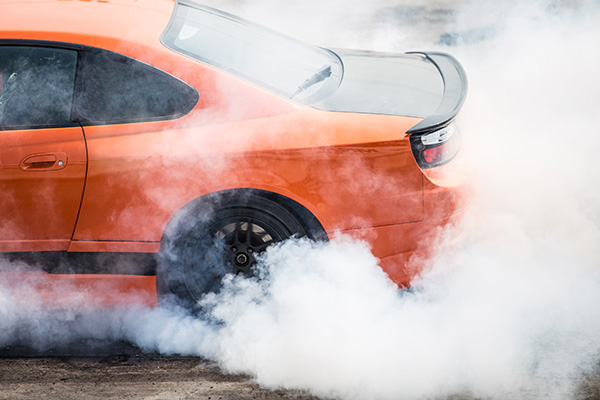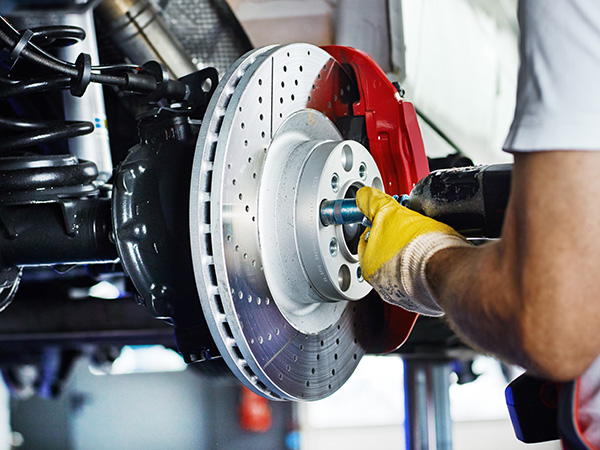Posted on 12/19/2025

BMW’s N63 V8 can feel silky and powerful when it is healthy, but it is also known for valve stem seal problems as the miles add up. When those seals start to fail, the engine may still run strong, yet it slowly begins burning oil and putting extra stress on expensive components. Spotting the early warning signs gives you a chance to deal with the issue on your terms instead of waiting for a major repair surprise. Why Valve Stem Seals Matter on the BMW N63 Valve stem seals sit where each valve passes through the cylinder head and into the combustion chamber. Their job is to keep oil on the top side of the head while allowing just enough lubrication on the valve stem. When they harden or wear out, oil can drip down the stems and into the cylinders, especially during idle and long decel. On the N63, heat and age are tough on these seals. Once they stop sealing properly, oil consumption increases, the exhaust starts to show it, and the catalytic converters and ox ... read more
Posted on 11/28/2025

When brakes feel uneven or there is a strong burn smell after a drive, a sticky caliper is a likely culprit. Many drivers assume the fix is a new caliper. Often, a quality rebuild restores full performance, keeps original fit and feel, and saves money without cutting corners. The key is knowing what a rebuild includes and when it is the better choice. What the Brake Caliper Does Your caliper converts hydraulic pressure into clamping force on the brake pads. Pistons move outward, pads squeeze the rotor, and the car slows. Seals keep fluid in and contamination out, while slider pins guide even pad wear. If seals harden or pins seize, braking becomes noisy, uneven, or weak. Rebuilding addresses those wear points directly. What Rebuilding Brake Caliper Means A proper rebuild is more than new seals. The caliper is removed, disassembled, and cleaned inside and out. Pistons and bores are inspected for pitting and measured for correct clearance. New press ... read more
Posted on 10/31/2025

Owning a track car is all about performance and adrenaline. But when racing season winds down, what you do in the off-season can make or break your car’s longevity and performance. Whether your vehicle is a weekend warrior or a fully built track machine, proper storage during the off-season protects your investment and ensures it's ready to go when spring rolls around. Here are five essential tips to store your track car the right way. 1. Thoroughly Clean the Car Inside and Out Before you put your track car away for weeks or months, give it a full detail. Track use leaves behind grime, brake dust, rubber debris, and sometimes even spilled fluids or fuel odors. Letting that residue sit over time can cause stains, corrosion, or mold. Wash the exterior, clean the wheels, and remove any tar or track grime stuck to body panels. Pay attention to the undercarriage too, especially if the car has been on wet or dirty tracks. Inside the cabin, vacuum thoroughly and ... read more
Posted on 9/26/2025

Taking your car to the track is an adrenaline-filled experience, but it also demands preparation. Even if your vehicle feels great on the street, track conditions push every component harder. From high-speed braking to sharp cornering and rapid acceleration, the added stress can expose weaknesses in both safety and performance. If you’re looking to make the most of your next track day, here are five upgrades that can improve your vehicle’s capabilities while keeping you safer behind the wheel. 1. High-Performance Brake Pads and Fluid Standard brake pads are designed for everyday driving, not repeated hard stops from high speeds. On the track, heat builds up quickly in your braking system. Stock pads can fade, reducing stopping power when you need it most. Upgrading to high-performance or track-rated pads gives you better resistance to heat and ... read more
Posted on 8/29/2025

Audi vehicles are known for blending luxury, technology, and performance in a way few brands can match. With advanced engineering, signature quattro all-wheel drive, and a reputation for refined styling, owning an Audi is a point of pride. However, keeping an Audi performing at its best requires a level of care that exceeds standard auto service. Many Audi owners choose specialty repair shops for maintenance and repairs. These shops specialize in European makes and possess the necessary tools, training, and expertise to service them properly. Here are five key reasons why Audi owners put their trust in specialty repair facilities. 1. In-Depth Audi Knowledge Specialty repair shops often employ technicians who specialize in working on Audis on a daily basis. This repeated exposure means they understand the specific systems, quirks, and design details of the brand. From the unique layout of the engine bay to Audi’s advanced suspension systems, experienced special ... read more